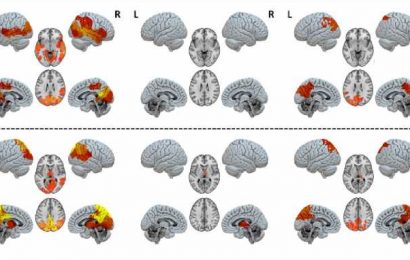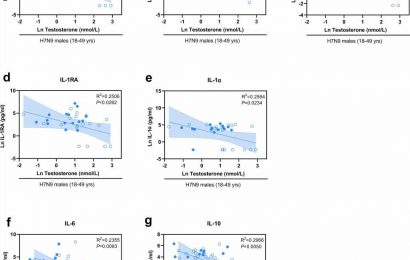
People who use marijuana have an increased risk of heart disease and heart attack, according to a large study led by researchers at Stanford Medicine.
The study also showed that the psychoactive component of the drug, known as THC, causes inflammation in endothelial cells that line the interior of blood vessels, as well as atherosclerosis in laboratory mice.
The inflammation and atherosclerosis can be blocked by a small molecule called genistein that occurs naturally in soy and fava beans, the researchers found. Because genistein has limited brain penetration, it doesn’t inhibit THC’s ability to stimulate appetite, dull pain and tamp down nausea—characteristics vital to medicinal marijuana users.
“As more states legalize the recreational use of marijuana, users need to be aware that it could have cardiovascular side effects,” said Joseph Wu, MD, Ph.D., professor of cardiovascular medicine and of radiology, and the director of the Stanford Cardiovascular Institute. “But genistein works quite well to mitigate marijuana-induced damage of the endothelial vessels without blocking the effects marijuana has on the central nervous system, and it could be a way for medical marijuana users to protect themselves from a cardiovascular standpoint.”
In part because THC, or tetrahydrocannabinol, is a controlled substance in the United States and therefore strictly regulated in medical research, the investigators cautioned that the long-term health effects of regular use remain largely unclear.
“Marijuana has a significantly adverse effect on the cardiovascular system,” said instructor of medicine Mark Chandy, MD, Ph.D. “As more states legalize marijuana use, I expect we will begin to see a rise in heart attacks and strokes in the coming years. Our studies of human cells and mice clearly outline how THC exposure initiates a damaging molecular cascade in the blood vessels. It’s not a benign drug.”
Wu, who holds the Simon H. Stertzer, MD, Professorship, is the senior author of the study, which will be published online April 29 in Cell. Chandy shares lead authorship with former postdoctoral scholar Tzu-Tang Wei, Ph.D., and instructor Masataka Nishiga, MD.
THC and inflammation
The researchers analyzed the genetic and medical data of about 500,000 people ages 40–69. The data was from the UK Biobank. Nearly 35,000 participants reported smoking cannabis; of those, about 11,000 smoked more than once a month. The more-than-monthly smokers were significantly more likely than others in the study to have a heart attack after controlling for other factors including age, body mass index and sex. The researchers found that frequent marijuana smokers were also more likely than nonusers to have their first heart attack before the age of 50—an unusual medical event called a premature heart attack that increases a person’s lifelong risk of subsequent heart attack, heart failure and life-threatening arrhythmias that can cause sudden death.
Inflammation of the blood vessels is a primary hallmark of atherosclerosis—the thickening of the vessel wall due to the buildup of plaques made up of fats, cholesterol and other substances—which can lead to heart attack. The researchers found that the levels of inflammatory molecules in the blood of volunteers who smoked a marijuana cigarette increased significantly over the subsequent three hours. They further showed that THC promotes inflammation and hallmarks of atherosclerosis in human endothelial cells grown in the laboratory. Finally, laboratory mice bred to have high cholesterol levels and fed a high-fat diet developed significantly larger atherosclerosis plaques when injected with THC at levels comparable to smoking one marijuana cigarette per day than did control animals.
THC binds to a receptor called CB1 on cells in the human brain, heart and vasculature system. The receptor recognizes naturally occurring cannabinoids, or endocannabinoids, which regulate mood, pain perception, immune function and metabolism. But frequent marijuana use causes inappropriate activation of CB1, which can cause inflammation and atherosclerosis, and it is associated with obesity, cancer and diabetes. Researchers have been trying to develop molecules called antagonists to block CB1’s function in conditions in which the receptor is overactive, like obesity, but until now the use of the antagonists has been thwarted by psychiatric side effects including mood disorders and anxiety arising from their activity in the brain.
Search for CB1 antagonists
The researchers used machine-learning techniques to screen a large database of protein structures and identify molecules structurally similar to previously identified CB1 antagonists that could block THC’s inflammatory and atherosclerotic properties without causing psychiatric side effects. They found that genistein, a naturally occurring molecule in soybeans, binds to CB1 but has poor brain penetration. When they added the genistein molecule to THC-treated human endothelial cells or gave it to the THC-injected mice with high cholesterol, they found genistein blocked the drug’s deleterious effects and did not block the psychoactive effects of THC on the brain.
“We didn’t see any blocking of the normal painkilling or sedating effects of THC in the mice that contribute to marijuana’s potentially useful medicinal properties,” Chandy said. “So genistein is potentially a safer drug than previous CB1 antagonists. It is already used as a nutritional supplement, and 99% of it stays outside the brain, so it shouldn’t cause these particular adverse side effects.”
The researchers hope to conduct clinical trials to learn whether genistein can reduce the risk of cardiovascular disease in marijuana users. They’d also like to extend their studies to include CBD—another cannabinoid in marijuana that does not have the psychoactive effects of THC.
Source: Read Full Article


